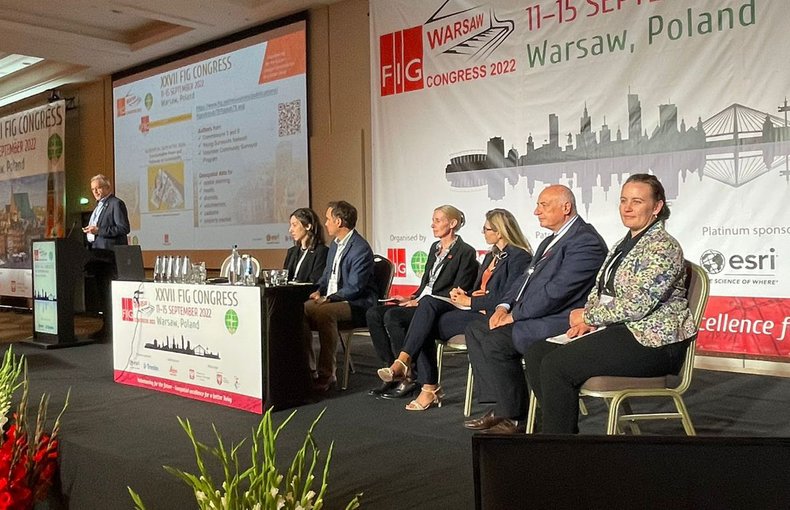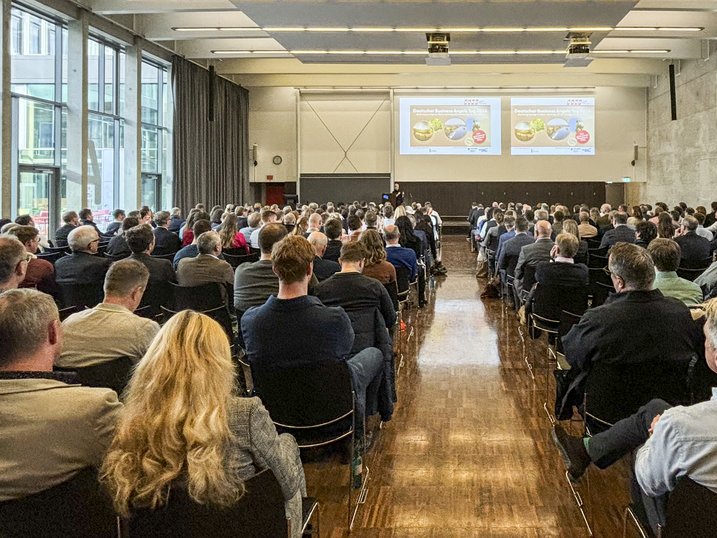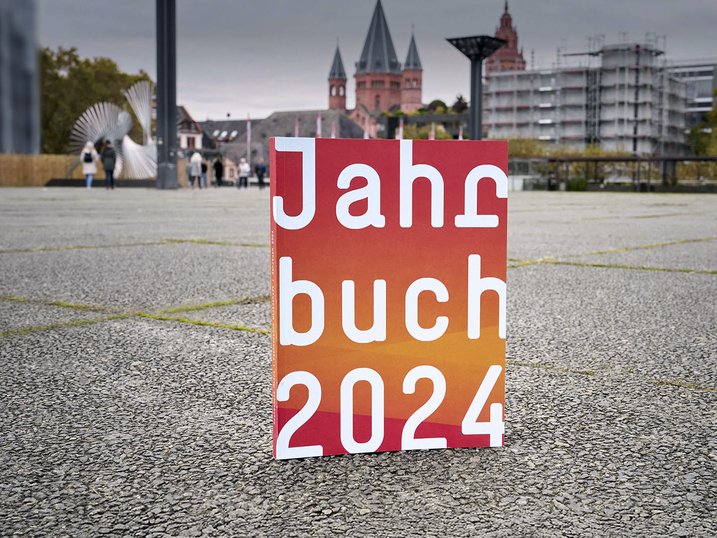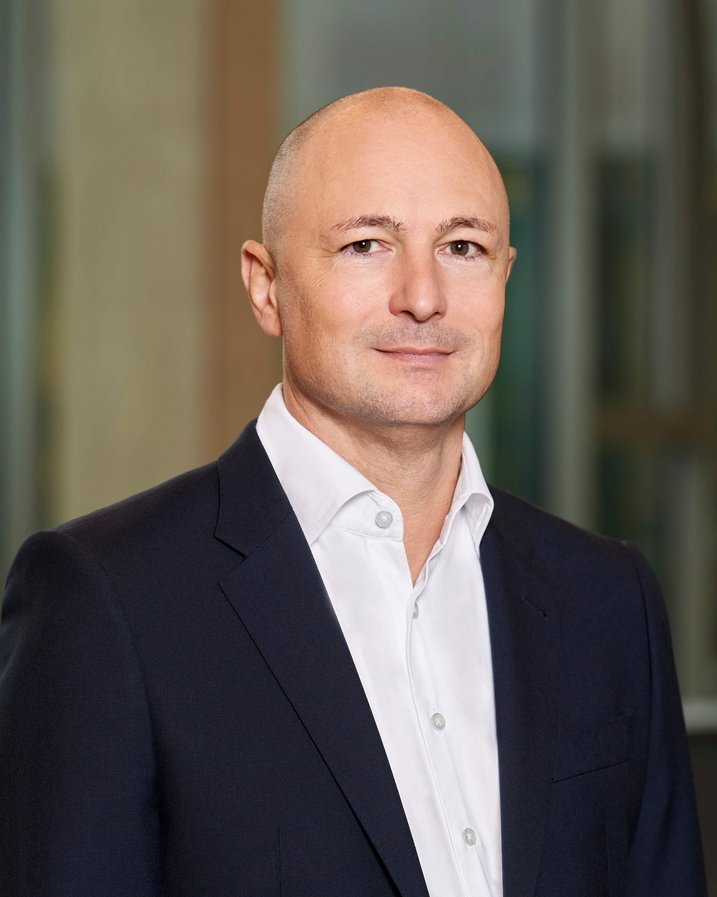The i3mainz was represented with an extraordinary level of commitment by Hartmut Müller and Markus Schaffert at the FIG Congress 2022, the congress of the International Federation of Surveyors, which took place in Warsaw from September 11-15. The congress takes place every four years.
Hartmut Müller, head of the FIG Commission 3 - Spatial Information Management for four years now, led this year’s event for the last time. In a special session, he and Markus Schaffert as editors, together with co-editors Claire Buxton and Marije Louwsma and a number of co-authors, presented the new FIG publication Geospatial Data in the 2020s, Transformative Power and Pathways to Sustainability, which was completed in time for the congress. The report summarizes key findings from the Commission’s four years of work and highlights a number of fields of application where geospatial data will be of great importance as we move toward sustainability in the 2020s, such as land use planning, health, diversity, volunteerism, land registries, and the real estate market. “As editors, we were able to leverage FIG’s global network, with a total of 16 authors from 9 countries providing a broad and balanced representation of the subject matter in different regions of the world,” said Hartmut Müller.
Presentation of the book with Cemre Sahinkaya Özer, Markus Schaffert, Marije Louwsma, Maria Scorza, Enrico Rispoli, and Claire Buxton (left to right) Photo by Cemre Sahinkaya Özer, CC BY SA 4.0
In the expert session titled Open Geospatial Data and Crowdsourcing, Markus Schaffert spoke about the challenge of locating places for specific purposes, such as the expansion of renewable energy. Collecting data locally across large areas is costly and time-consuming. The idea of using data from photo-sharing platforms like Flickr could provide a workaround. However, the method needs to be significantly improved before it can be applied in a field as sensitive as wind turbine development planning. The presentation was based on the results of a thesis written by Marcel Kindsvater.

Several commission chairs: Dan Roman, Mohd Razali Mahmud, David Mitchell, Hartmut Müller, Winnie Shiu, Marije Louwsma, Maria Henriques, and Mikael Lilje (left to right). Photo by Winnie Shiu, CC BY SA 4.0
Hartmut Müller served as an expert reviewer on the joint UN-FAO, UNECE, FIG publication Digital transformation and land administration – Sustainable practices from the UNECE region and beyond, he delivered a talk on this topic in another special session and reported to the FIG General Assembly in the closing session. Finally, as spokesperson for the chairs of the special commissions and networks, he reported to the General Assembly on the outcomes of all 10 special commissions and networks during the congress.
After a three-year hiatus brought on by Covid, during which in-person events with 1,000 or more participants were not possible, the congress was a highly intense time packed with meetings with familiar and new colleagues from around the world. Brimming with inspiration for further collaboration with professional colleagues from all over the world, we went home looking forward to the next big FIG gathering, the FIG Working Week 5/28 to 6/1 2023 in Orlando, USA.





